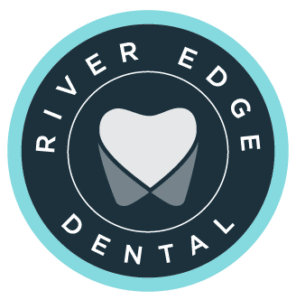Here are some guidelines for endodontics (root canal) postoperative care, although you should consult with our team for specific instructions if you have received any of the following:
- Orthodontics
- Home Care After Dental Treatment
- Dental Implants
- Socket Graft
- Scaling & Root Planing
Anesthesia: It is normal to have local anesthesia after you get a root canal treatment. You will be numb when you leave our office. Wait until the feeling returns before you eat anything or drink any hot liquids. Chewing when numb can cause you to bite your tongue, cheek, or lips, and it is easy to burn yourself with hot liquids.
Discomfort: You will likely experience some discomfort after a root canal treatment. This is normally less than you had before your treatment, but it may still be significant. If you have prescription pain medication, take it according to the instructions you were given, usually starting before the numbness wears off.
In many cases, over-the-counter pain medications are adequate to control your discomfort. If this was recommended, start taking your medication at the first sign of feeling returning.
Discomfort typically tapers off a few days after the procedure. If it doesn’t diminish or if it increases, please contact us.
Temporary Restorations: Most of the time, we will place a temporary restoration at the time we perform root canal therapy. If you have a temporary restoration, treat it with care. Avoid eating hard food, chewy food, and sticky food. Consider chewing on the other side of the mouth. Brush temporary crowns normally, but floss with care to avoid dislodging them.
Contact us if your temporary restoration comes off or breaks.
Uneven Bite: Your bite may feel off at first, even if it’s not. Give it some time to adjust, especially if you are still numb. In addition, if you had a badly damaged tooth before, having a full tooth again might feel unusual.
But if the bite still doesn’t feel right after a day or so, please contact us.
Watch For Complications: Root canal treatment has a very high success rate, but you should still be vigilant for signs of possible complications. Please contact our office if you experience:
- Allergic reaction to the medication
- Visible swelling inside your mouth or outside your mouth near the treatment site
- Localized warmth or a general fever
- Increasing pain or pain that doesn’t diminish
- Foul smell or taste in your mouth
These may be signs of potentially serious complications and should not be ignored.
Care Of Restoration: When you have received your permanent dental crown, it’s important to take good care of it. Do not use your tooth as a tool for opening bottles, cutting twine, crunching ice, or cracking nuts. Your teeth are for biting and chewing, and that’s what your restoration is designed to do.
Depending on the style of restoration you chose, we may recommend other changes to your diet or eating habits.
Usually, care for your restoration is the same as for your natural teeth. Brush twice a day and floss every day. We will let you know if your style of restoration requires other changes, like a different toothbrush or special cleaning tools.
Questions Or Concerns: We encourage you to contact our office if you have any questions or concerns about your recovery or restorations. Please contact us to ask your questions or schedule a follow-up appointment with a River Edge Dental dentist at our office in River Edge, NJ.



